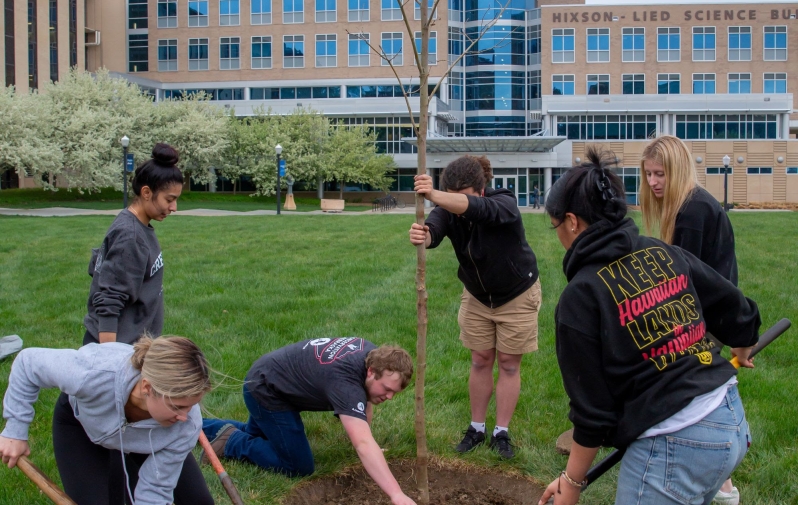
The mission of Conservation Nebraska is to protect the state’s natural legacy while educating the public, supporting communities, and increasing civic engagement. Starting with education, Conservation Nebraska aims to meet people where they are by tailoring programming to the interests and needs of communities across the state. However, Conservation Nebraska is not content with education alone. Their programs also support budding activists as they undertake projects in their own communities. Amanda Gangwish, Common Ground Program Director at Conservation Nebraska, explained that the goal is to empower “community members to actually start making some changes in their area based off of some of that education that they're receiving.” By helping communities learn about issues and prioritize projects and policy outcomes, Conservation Nebraska’s programs encourage civic engagement, even beyond local issues. Amanda explains, “Hopefully, [program participants] are also becoming educated voters, understanding priorities and issues and how they can make an impact.”
“We're educating the public, giving them the knowledge about the issues and understanding about what's happening, but then we're also going to try to give them a way to actually take action on that and make a change, both in their lives as well as in their community.”
-Amanda Gangwish
Program Feature: Our Legacy Nebraska
One new program that has seen great success is Our Legacy Nebraska, directed by Favian Mendez. Our Legacy Nebraska is a three-year program that aims to develop leadership in and provide support to communities impacted by environmental injustices. First, Favian explains, they work to recruit participants in their focus communities, intentionally seeking out a diverse participant pool. Conservation Nebraska also aims to minimize the barriers to participation by paying participants and providing meals during training. Currently, program participants are being recruited from South Sioux City, Grand Island, Lexington, and Omaha.
Cohorts in Omaha and Lexington just wrapped up their first year of the Our Legacy Nebraska program, and they’ve already accomplished a lot. In Lexington, much of their work has been focused on creating a more welcoming and economically viable community, while also addressing lead poisoning issues. The Omaha cohort is also taking on lead poisoning, focusing on policy change and community education. Some of their policy goals include mandatory blood testing for children under six and securing funds to replace lead pipes in low-income neighborhoods. A huge piece of their work is also simply sharing information with their neighbors through door-to-door canvassing. There are “people who still might not know that it has been 20 years of Omaha being the largest residential EPA Superfund site in the country for lead,” explains Favian. “There's so much information…that we just need to get it out there to people who still might not know.”
Making Change
Conservation Nebraska believes that these local, community-driven projects multiply into change across the state and even nationally. As a Nebraska Table Member, Conservation Nebraska often works in collaboration with other nonprofits to reach even more communities to avoid duplication of efforts. By partnering with other Member organizations, Conservation Nebraska is able to identify more local issues and inspire more communities to action. Amanda summarizes Conservation Nebraska’s method perfectly, stating “For people to want to be engaged, especially when it comes to environmental issues and conservation issues, the issue has to be relevant to them and to their own lives.”
If you want to get involved with Conservation Nebraska and support their work across the state, follow them on social media and check out their website for information about upcoming events!
Website: neconserve.org
Facebook: facebook.com/ConservationNebraska
Instagram: instagram.com/conservationnebraska
YouTube: youtube.com/@ConservationNebraska